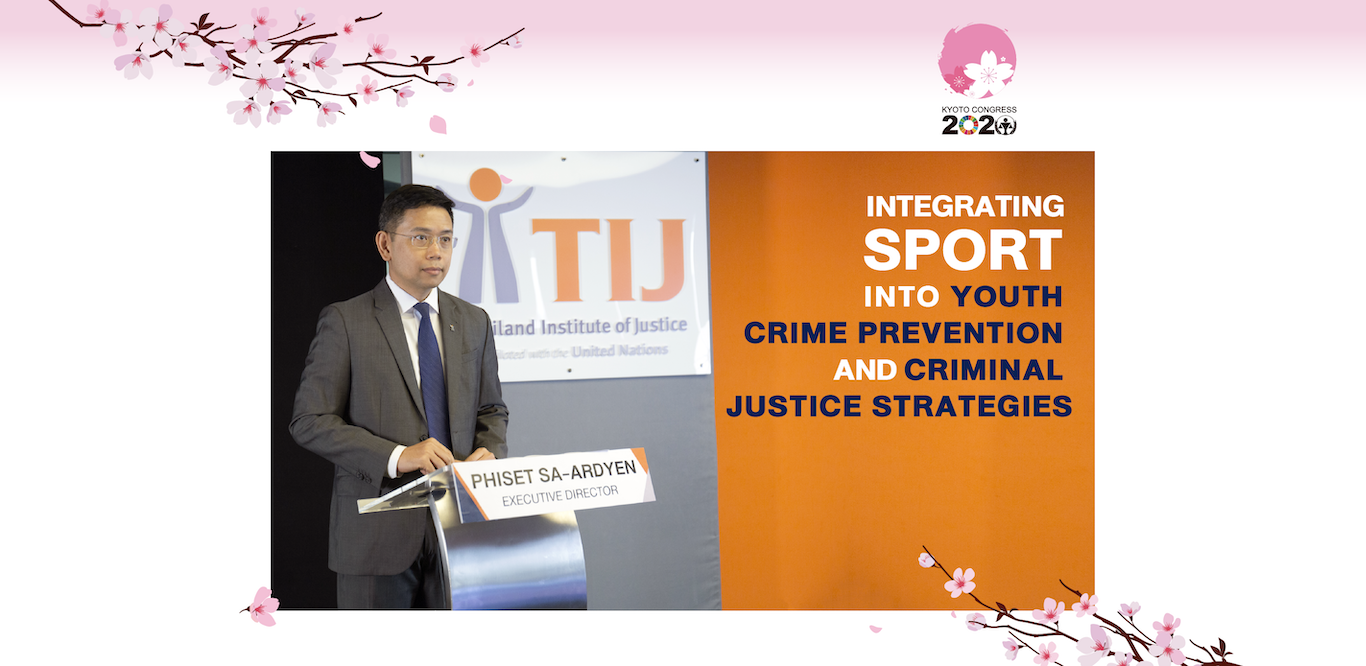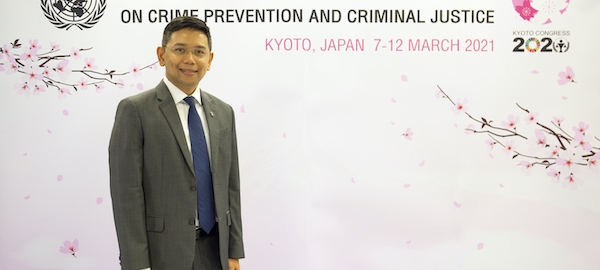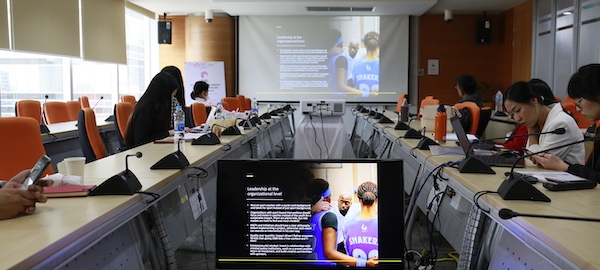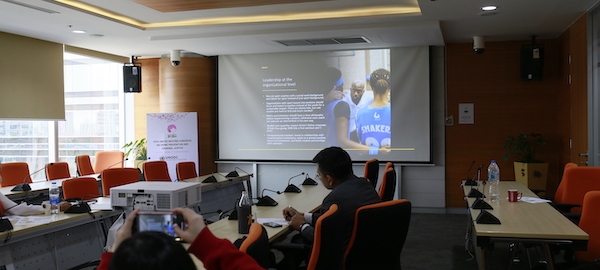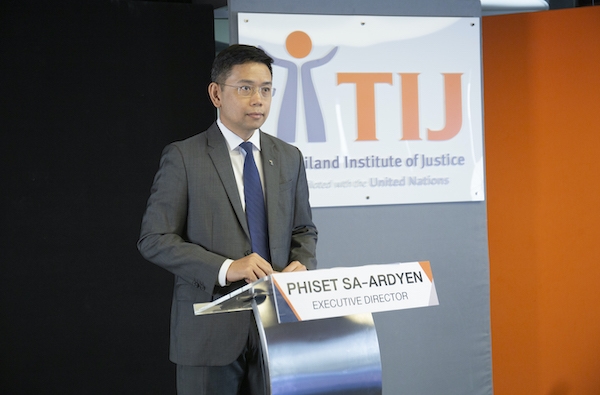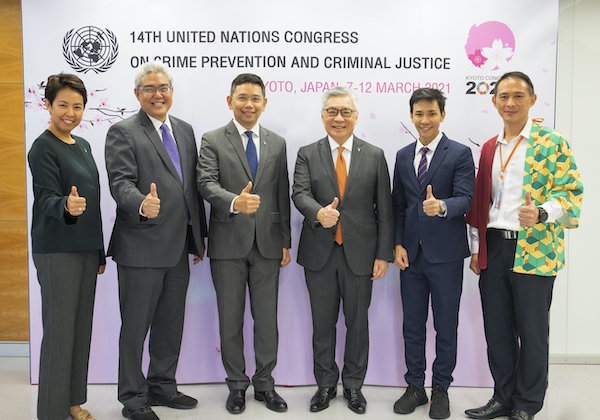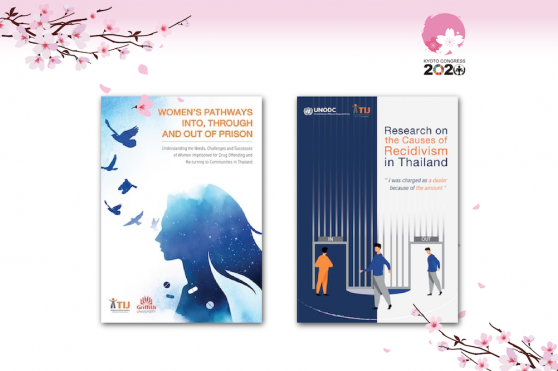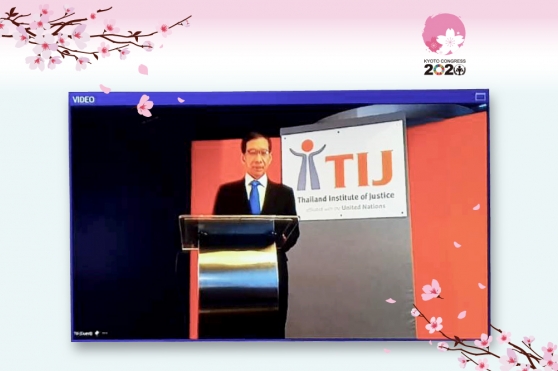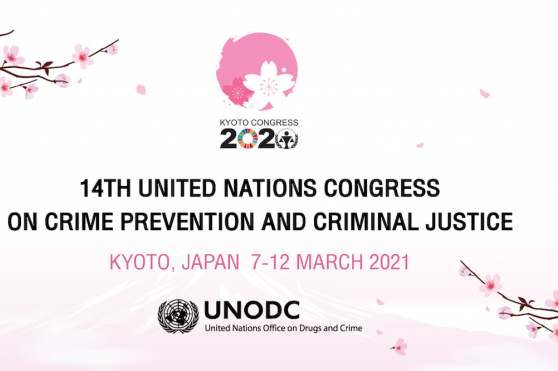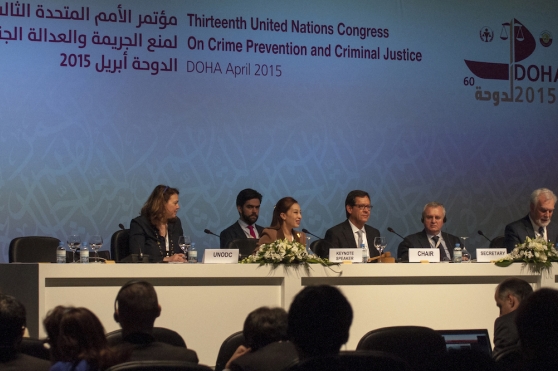TIJ emphasized sports as a tool for preventing youth crime in the 14th Crime Congress’s ancillary meeting
“Sports as a tool doesn’t work by itself, it’s the coach who can make it work,”
emphasized Mr. Peter Ottens, Founder of YETS Foundation, in the online ancillary meeting on “Integrating Sport into Youth Crime Prevention and Criminal Justice Strategies” on 8 March 2021 at the 14th United Nations Congress on Crime Prevention and Criminal Justice – Crime Congress in Kyoto, Japan.
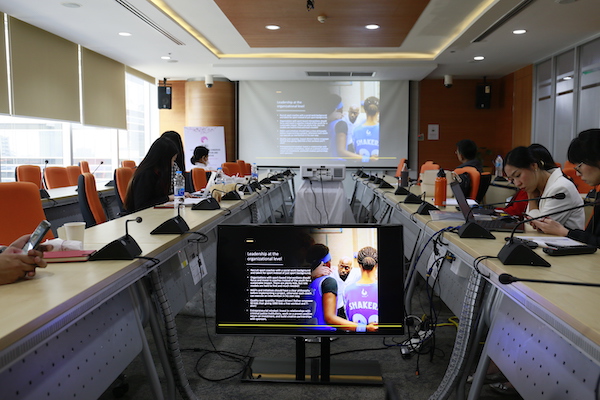
The ancillary meeting on “Integrating Sport into Youth Crime Prevention and Criminal Justice Strategies” was organized by the Thailand Institute of Justice (TIJ) to create the awareness on the importance of the utilization of sports as a tool to prevent reoffending in youths, as well as increase life skills of young offenders prior to their release. Consequently, young offenders will successfully reintegrate into the society and pursue better lives. The content of the meeting is consistent with the resolution on “Integrating Sport into Youth Crime Prevention and Criminal Justice Strategies”, proposed by Thailand, in the 28th Commission on Crime Prevention and Criminal Justice. Member States adopted the resolution by consensus and it was implemented across the globe.
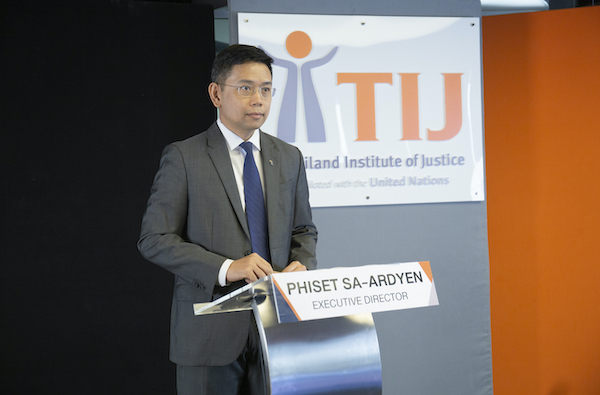
Dr. Phiset Sa-ardyen, Executive Director of TIJ, mentioned during his keynote remarks that since the Crime Congress in Doha in 2015, the United Nations Office on Drugs and Crime (UNODC) has been active in implementing programs on Youth Crime Prevention through Sport. The underlying concept is that sport can be a useful tool in crime prevention due to its potential to promote mutual respect and self-empowerment. This is also in line with the United Nations Action Plan on Sport for Development and Peace.
As the proposer of the resolution on “Integrating Sport into Youth Crime Prevention and Criminal Justice Strategies”, Thailand has collaborated with all relevant sectors at the national, regional, and international level to make a concrete advancement in such strategies. Experts such as Professor Rosie Meek, Professor of Psychology and Criminology at Royal Holloway University of London, worked in collaboration with Mr. James Mapstone, Chief Executive of the Alliance of Sport, in a research project to review the effective means in the utilization of sports as a crime prevention tool. Recently, we have worked with Thailand’s Department of Physical Education and successfully introduced a sport-based youth crime prevention component into the 5-year ASEAN Work Plan on Sports.
“This is the new horizon for collaborative and innovative justice, where we redouble our efforts to embrace the role of sport to achieve sustainable development, justice, and peace worldwide,”
noted Dr. Phiset towards the end of his remarks.
In this meeting, experts from various countries shared their insights, including Mr. Johannes de Haan, Crime Prevention and Criminal Justice Officer, Justice Section of the United Nations Office on Drugs and Crime (UNODC), Professor Rosie Meek, Professor of Psychology and Criminology at Royal Holloway University of London, Mr. James Mapstone, Chief Executive of the Alliance of Sport, and Mr. Peter Ottens, Founding Director of YETS. The meeting was moderated by Mr. Kittipoom Neamhom, Director of the Office of External Relations and Policy Coordination, TIJ.
During the meeting, Professor Rosie Meek, Professor of Psychology and Criminology at Royal Holloway University of London mentioned that sports contribute to the development of youths and society. A reference was made to an academic research that sports has potential to reduce anger and can change youths’ behavior in the justice system to result in an improved physical and mental health. The key priorities in integrating sports into the strategies are to develop meaningful partnerships between criminal justice agencies and the sporting community, inclusive of the minority groups in the society, and to develop effective monitoring and evaluation and dissemination strategies.
Mr. James Mapstone, Chief Executive of the Alliance of Sport, added that the key factor that contributes to the success of the integration of sports into crime prevention is not just sporting, but also an effective collaboration and partnership. The Alliance launched a project called “Levelling the Playing Field (LtPF)” to empower local people and organizations, helping them to maximize their work in using the power of sport and physical activities to engage and improve health and life outcomes for ethnically diverse children who are more likely to enter, or already involved with, the Criminal Justice System.
“Instead of telling kids what to do, we should provide them with positive and negative aspects of peer culture and the absence of role models in life and the sense of belonging at home or school,”
highlighted Mr. Peter Ottens, Founding Director of YETS. He further discussed that good coaches will lead youths to better paths compared to the promotion of sport for behavioral change alone. In addition, the implementers of sporting activity for youth crime prevention should have common philosophy and build partnerships with relevant agencies such as justice system, for the effective implementation of the projects.
Finally, Mr. Johannes De Haan, Crime Prevention and Criminal Justice Officer, UNODC, presented key observations from the United Nations Expert Group Meeting on the “Integrating Sport into Youth Crime Prevention and Criminal Justice Strategies”, co-organized by TIJ and UNODC, at the end of 2019 that not only can sport help with crime prevention, it can also play a role in generating social capital and building solidary within the community and can be integrated into the criminal justice system to strengthen community-police relations, alternatives to imprisonment, probation and the rehabilitation and social reintegration of offenders. Women and girls will also benefit from the utilization of sports as a crime prevention strategy.
Updates are available at https://www.unodc.org/unodc/en/crimecongress/about.html
or https://www.tijthailand.org
#TIJ #CrimeCongress #UNODC



